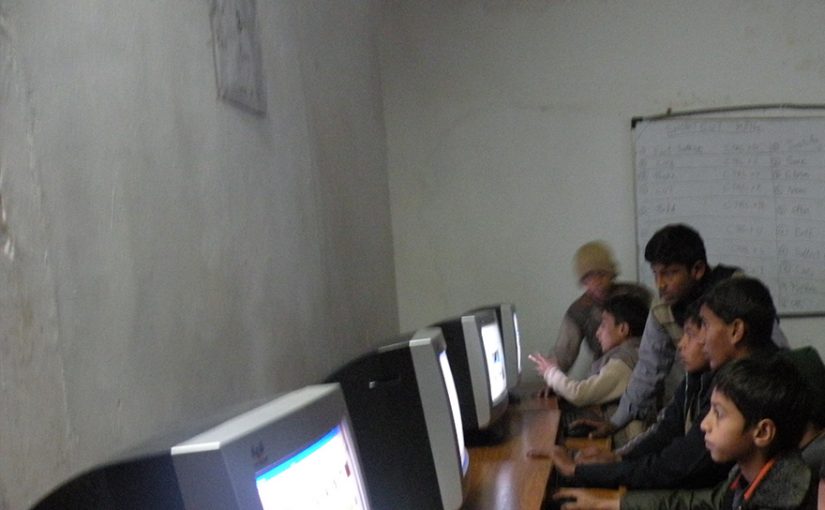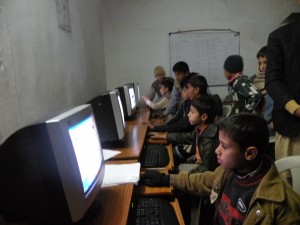AS A CONCERNED CITIZEN, I WOULD LIKE TO URGE ALL THOSE WHO HAVE ANYTHING TO DO WITH THE ICT SECTOR TO DO WHATEVER THEY CAN, TO PUSH AND EXPEDITE INTRODUCTION OF MOBILE BROADBAND (3G OR WHATEVER) . I say this because yet another delay (albeit short and for good reasons) has appeared.
Irrespective of the on-going, completely unnecessary, “controversy” surrounding auction of 3G in Pakistan, allotting 3G frequencies to telecom operators is extremely urgent and essential for Pakistan. We have already been left behind by others who used to be our followers in 2G. Mobile broadband – or 3G – should have been introduced here already four years ago. The delay has made us lose huge opportunities relating to job creation, international trade, economic growth and Foreign Direct Investment (Telecom FDI 2007: US$1,824 mil and 2011: US$ 79 mil). Not to mention letting the technology gap between the advanced countries and us widen even more, despite the fact that more than 70% of our population is below 35 – normally considered early adopters of modern technology.
According to ITU’s World Telecommunication/ICT Indicators Database, a total of 159 economies worldwide have launched 3G services commercially and the number of active mobile-broadband subscriptions has surpassed one billion. Countries from New Zealand to USA are allocating huge amounts of national resources to deploy infrastructure, like Optic Fiber Cables, to facilitate delivery of broadband to the citizens. Whereas we are taking ages even to allocate the God-given resource of frequency-spectrum which will facilitate provision of broadband.
Some skeptics ask what we will do with 3G? Mostly they are only thinking in terms of mobile phones – and not mobile broadband. Although a lot could be done with 3G smart phones too (present estimate 15 mil smart phones in Pakistan, expected to increase to 50 mil by 2016), it is 3G mobile broadband, mainly using USB dongles, complementing fixed broadband, that is of bigger value and main attraction for countries like ours. While people in developed countries usually use mobile-broadband in addition to the fixed, mobile-broadband is often the only access method available to people in developing countries.
Broadband has tremendous commercial usages but one of it’s main benefits lies in it’s capability as a deliverer of basic services to hundreds of millions of citizens, especially those living in the hinterlands of the country. Education, Health, Governance, Commerce, Agriculture, Women Empowerment,… all can find their way. Greater access to broadband services has been found to help accelerate achievement of development targets like the internationally-agreed Millennium Development Goals. It is only using broadband that we can serve our exploding population (CAGR: 2.5%) at their doorsteps, not only to bring prosperity to them but also prevent mass migration to urban centers and save our bursting mega-cities from crumbling under their own weight.
Right now in Pakistan broadband is available in less than 300, small and big, towns and cities. All the present two million connections being of fixed broadband category (50% wireless). But then there is only so much fixed technologies can do. Fortunately, thanks to the ubiquitous 2G GSM network, 3G can take broadband to every nook and corner of the country, becoming accessible to more than 90% population, with relatively small effort. I have deliberately used the word “effort” and not investment because investment will come from private sector telecom operators. Here is a sector where the government doesn’t need to bother about development budget allocations and resource constraints. Just like 2G was such an effective engine of growth for our economy, 3G too could contribute significantly. Admittedly the private sector operators would like to invest and deploy 3G mainly in large cities, but for the rest there is USF!
As for the controversy, firstly, on a per-megahertz-per-year basis, the announced base price is equal to the peak price achieved last time around. Secondly it is likely to go higher during bidding, despite worse political/economic/security situation than in 2004. And thirdly the licenses are going to be technology-neutral, therefore it is the operators who would decide whether they deploy 3G or something else (incidentally 4G – the so-called LTE Advanced — is not even there yet). Yes, the only thing that all of us need to be vigilant about and jealously guard is the process being followed. The process must be fair and transparent.


